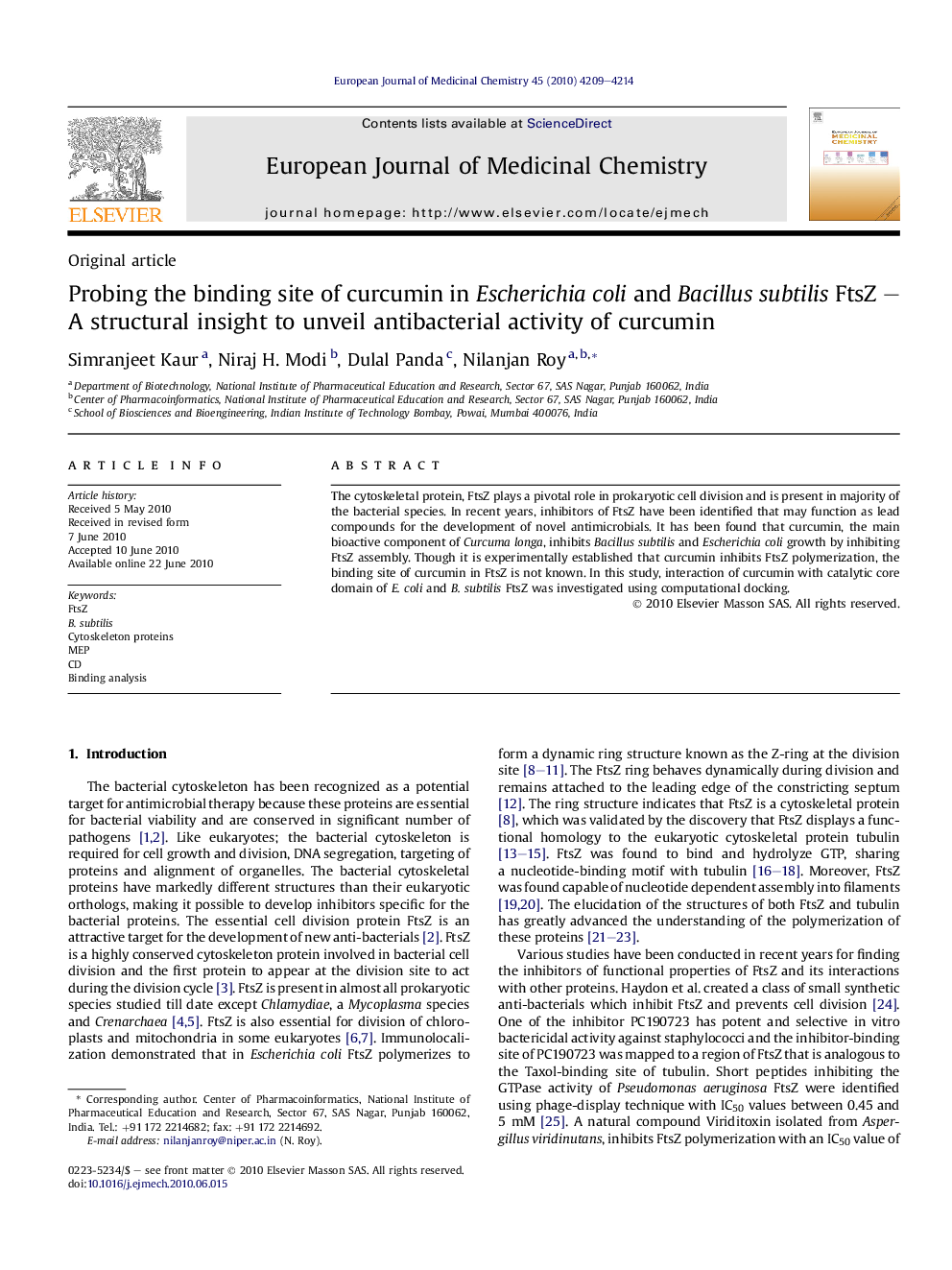| Article ID | Journal | Published Year | Pages | File Type |
|---|---|---|---|---|
| 1394821 | European Journal of Medicinal Chemistry | 2010 | 6 Pages |
The cytoskeletal protein, FtsZ plays a pivotal role in prokaryotic cell division and is present in majority of the bacterial species. In recent years, inhibitors of FtsZ have been identified that may function as lead compounds for the development of novel antimicrobials. It has been found that curcumin, the main bioactive component of Curcuma longa, inhibits Bacillus subtilis and Escherichia coli growth by inhibiting FtsZ assembly. Though it is experimentally established that curcumin inhibits FtsZ polymerization, the binding site of curcumin in FtsZ is not known. In this study, interaction of curcumin with catalytic core domain of E. coli and B. subtilis FtsZ was investigated using computational docking.
Graphical abstractWe propose the binding conformation of curcumin in E. coli and B. subtilis FtsZ and suggest plausible critical interactions with the active site residues. Figure optionsDownload full-size imageDownload as PowerPoint slide
